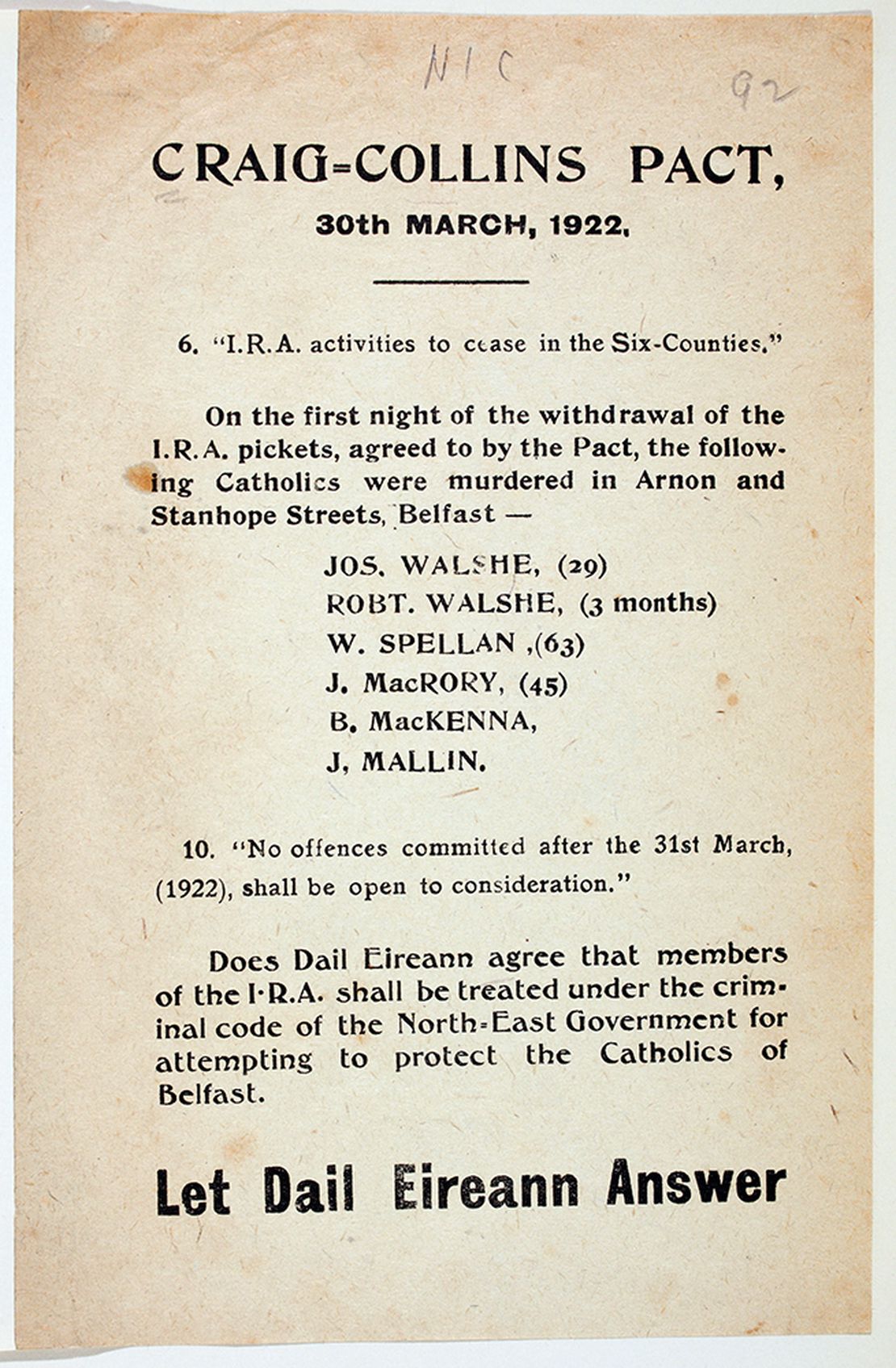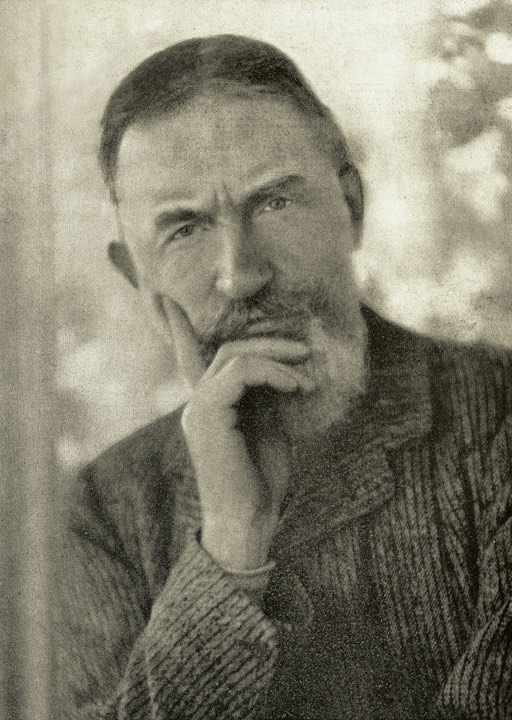- March 30, 1922
The prime minister of Northern Ireland, Sir James Craig, and the provisional prime minister of Southern Ireland, Michael Collins, met in London to agree terms to end the violence engulfing the North. The agreement stated that Catholics would be recruited into the Ulster Special Constabulary. However, almost from the start the agreement began to break down due to the continuing violence and police brutality in the North, many Unionist MPs in Northern Ireland openly opposing the pact.
The Craig-Collins Pact, signed on March 30, 1922, was a significant agreement between two key figures of Ireland and Northern Ireland during a critical period in Irish history. Michael Collins, representing the Irish provisional government, and James Craig, the Prime Minister of Northern Ireland, came together to try to ease the tensions that were high following the partition of Ireland.
The background to this pact was the complex and fraught situation in Ireland in the early 1920s. The Anglo-Irish Treaty of 1921 had established the Irish Free State as a dominion within the British Empire but also confirmed the partition of Ireland, with six counties in the north forming Northern Ireland, which remained part of the United Kingdom. This arrangement was deeply controversial and led to the Irish Civil War (1922–1923) between pro-Treaty and anti-Treaty forces.
The Craig-Collins Pact aimed to address the violence and unrest in Northern Ireland, particularly targeting the issue of sectarian violence and the position of nationalists within the newly formed Northern Ireland. Key points of the agreement included:
- An end to the boycott of goods from Northern Ireland, which had been promoted by nationalists in the south.
- A commitment to end the violence that had flared up, particularly affecting the nationalist Catholic population in Northern Ireland.
- The establishment of a council to oversee the implementation of the agreement’s terms and facilitate ongoing cooperation between North and South.
Despite the hopeful outlook following the signing of the pact, its effectiveness was limited. The outbreak of the Irish Civil War just a few months later in June 1922 overshadowed the agreement and halted much of the cooperation it had sought to establish. Additionally, the ongoing sectarian tensions and violence in Northern Ireland persisted, indicating the pact’s limited impact in addressing these deep-seated issues.
The Craig-Collins Pact is remembered as a notable attempt to foster peace and cooperation during a tumultuous period in Irish history, showcasing the efforts of leaders to find common ground despite the divisions that the partition had entrenched.
Two “Craig–Collins Pacts” fail to resolve sectarian differences between North and South

 ← George Bernard Shaws Back to Methusaleh V premieres in New York
← George Bernard Shaws Back to Methusaleh V premieres in New York
 Special Powers Act is introduced in Northern Ireland →
Special Powers Act is introduced in Northern Ireland →